Kazi Nazrul To End Misrule -Wahidul Islam
Kazi Nazrul Islam is one of the most influential rebel poets of the planet we live on. As a developing nation Bangladesh, which remained as a disadvantaged British colony, chose Nazrul as its national poet. Naturally the spirit of rebellion suits those persons or nations who want to wrench themselves free from clutches of their colonial masters. Poet Nazrul was born when Hindu zamindars used to oppress their subjects both Muslims and lower cast Hindus alike. Nazrul represented the oppressed particularly the Muslims and grew up to protest against all sorts of social stratification as well as oppression. In course of time he became voice of the downtrodden Muslims, poor Christians and Hindu dalits of the Indian subcontinent.
Born to a mosque imamfather Kazi Nazrul Islam himself was involved with the mosque operation.He used to call azan and sometimes lead the prayers in the masjid. At one stage he joined leto dal most probably to augment his income. He attended school but before matriculation he responded to the call of First World War. He dropped out of school. As a spirited Muslim and also a muezzin he knew the importance of any call particularly for a war which is synonymous with jihad. An epitome of rebellious and anti-colonial mantra Nazrul joined WWI in 1914 like many other Muslim soldiers of Ottoman Empire and Muslim colonies of the western powers. His first attempt to marry Nargis was aborted buthis second marriage initiative was successful with Promila Devi on 24th April in 1924. Nazrul had his children Bulbul, Krishna Muhammad, Sabyashachi Kazi and Anirudhdha Kazi but the first two issue died in early years of their life.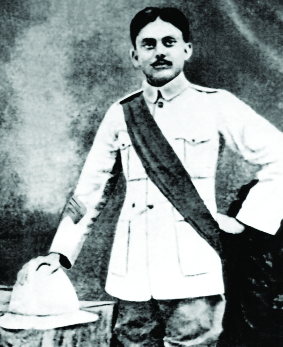
Nazrul wrote Bidrohi sometime around 1921— the year when Dhaka University was founded.It is regarded greatest poems in the world. The poem was translated by Kabir Chowdhury is as follows:
Say, Valiant,
Say: High is my head!
Looking at my head
Is cast down the great Himalayan peak!
Say, Valiant,
Say: Ripping apart the wide sky of the universe,
Leaving behind the moon, the sun, the planets
and the stars
Piercing the earth and the heavens,
Pushing through Almighty’s sacred seat
Have I risen,
I, the perennial wonder of mother-earth!
The angry God shines on my forehead
Like some royal victory’s gorgeous emblem.
Say, Valiant,
Ever high is my head!
I am irresponsible, cruel and arrogant,
I an the king of the great upheaval,
I am cyclone, I am destruction,
I am the great fear, the curse of the universe.
I have no mercy,
I grind all to pieces.
I am disorderly and lawless,
I trample under my feet all rules and discipline!
I am Durjati, I am the sudden tempest of ultimate summer,
I am the rebel, the rebel-son of mother-earth!
Say, Valiant,
Ever high is my head!
I am the hurricane, I am the cyclone
I destroy all that I found in the path!
I am the dance-intoxicated rhythm,
I dance at my own pleasure,
I am the unfettered joy of life!
I am Hambeer, I am Chhayanata, I am Hindole,
I am ever restless,
I caper and dance as I move!
I do whatever appeals to me, whenever I like,
I embrace the enemy and wrestle with death,
I am mad. I am the tornado!
I am pestilence, the great fear,
I am the death of all reigns of terror,
I am full of a warm restlessness forever!
Say, Valiant,
Ever high is my head!
I am creation, I am destruction,
I am habitation, I am the grave-yard,
I am the end, the end of night!
I am the son of Indrani
With the moon in my head
And the sun on my temple
In one hand of mine is the tender flute
While in the other I hold the war bugle!
I am the Bedouin, I am the Chengis,
I salute none but me!
I am thunder,
I am Brahma’s sound in the sky and on the earth,
I am the mighty roar of Israfil’s bugle,
I am the great trident of Pinakpani,
I am the staff of the king of truth,
I am the Chakra and the great Shanka,
I am the mighty primordial shout!
I am Bishyamitra’s pupil, Durbasha the furious,
I am the fury of the wild fire,
I burn to ashes this universe!
I am the gay laughter of the generous heart,
I am the enemy of creation, the mighty terror!
I am the eclipse of the twelve suns,
I herald the final destruction!
Sometimes I am quiet and serene,
I am in a frenzy at other times,
I am the new youth of dawn,
I crush under my feet the vain glory of the Almighty!
I am the fury of typhoon,
I am the tumultuous roar of the ocean,
I am ever effluent and bright,
I trippingly flow like the gaily warbling brook.
I am the maiden’s dark glassy hair,
I am the spark of fire in her blazing eyes.
I am the tender love that lies
In the sixteen year old’s heart,
I am the happy beyond measure!
I am the pining soul of the lovesick,
I am the bitter tears in the widow’s heart,
i am the piteous sighs of the unlucky!
I am the pain and sorrow of all homeless sufferers,
i am the anguish of the insulted heart,
I am the burning pain and the madness of the jilted lover!
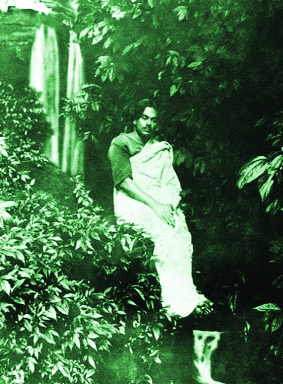
I am the unutterable grief,
I am the trembling first touch of the virgin,
I am the throbbing tenderness of her first stolen kiss.
I am the fleeting glace of the veiled beloved,
I am her constant surreptitious gaze.
I am the gay gripping young girl’s love,
I am the jingling music of her bangles!
I am the eternal-child, the adolescent of all times,
I am the shy village maiden frightened by her own budding youth.
I am the soothing breeze of the south,
I am the pensive gale of the east.
I am the deep solemn song sung by the wondering bard,
I am the soft music played on his lyre!
I am the harsh unquenched mid-day thirst,
I am the fierce blazing sun,
I am the softly trilling desert spring,
I am the cool shadowy greenery!
Maddened with an intense joy I rush onward,
I am insane! I am insane!
Suddenly I have come to know myself,
All the false barriers have crumbled today!
I am the rising, I am the fall,
I am consciousness in the unconscious soul,
I am the flag of triumph at the gate of the world,
I am the glorious sign of man’s victory,
Clapping my hands in exultation I rush like the hurricane,
Traversing the earth and the sky.
The mighty Borrak is the horse I ride.
It neighs impatiently, drunk with delight!
I am the burning volcano in the bosom of the earth,
I am the wild fire of the woods,
I am Hell’s mad terrific sea of wrath!
I ride on the wings of the lightning with joy and profound,
I scatter misery and fear all around,
I bring earth-quakes on this world!
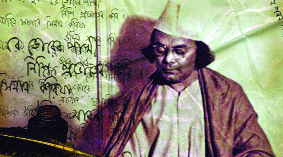
I am Orpheus’s flute,
I bring sleep to the fevered world,
I make the heaving hells temple in fear and die.
I carry the message of revolt to the earth and the sky!
I am the mighty flood,
Sometimes I make the earth rich and fertile,
At another times I cause colossal damage.
I snatch from Bishnu’s bosom the two girls!
I am injustice, I am the shooting star,
I am Saturn, I am the fire of the comet,
I am the poisonous asp!
I am Chandi the headless, I am ruinous Warlord,
Sitting in the burning pit of Hell
I smile as the innocent flower!
I am the cruel axe of Parsurama,
I shall kill warriors
And bring peace and harmony in the universe!
I am the plough on the shoulders of Balarama,
I shall uproot this miserable earth effortlessly and with ease,
And create a new universe of joy and peace.
Weary of struggles, I, the great rebel,
Shall rest in quiet only when I find
The sky and the air free of the piteous groans of the oppressed.
Only when the battle fields are cleared of jingling bloody sabres
Shall I, weary of struggles, rest in quiet,
I the great rebel.
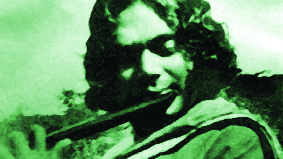
I am the rebel eternal,
I raise my head beyond this world,
High, ever erect and alone!
Since then his anti-British and rebellious writings, lectures and performance flied very high. His anti-colonial journalism angered the then British regime and their Hindu cohorts, landing him in jail. Vibrant and vocal, Nazrul didn’t compromise under any sort of English and Hindu zamindar duress. He turned into anti-British icon to the Indians. So Netaji Subhas Chandra Bose declared him National Poet of Indian Bengali speaking people at a reception ceremony attended by the journalists, litterateur, poets and writers in Kolkata. He was the heartthrob of quit-India, non-cooperation, and emancipatory movements of that time. Poetically he was the pioneer in mobilizing anti-colonial movement which was politically powered by politicians and religiously powered by the Islamic scholars in the whole Indian subcontinent. The spree of being martyrs, which spanned 190 years, particularly by the Muslims stopped for some time. In 1947 the movements became successful and the British regime stopped its India ruling. Nazrul’s literature had helped India a lot in winning its freedom.
After English baniyas left the country the local baniyas started to surface. So Bidrohi, Anandamoyeer Agomone, Daridro along with other poems, dramas, articles started to transcended time. Indian and Pakistani hegemonic rule kicked off soon after their independence. Dreams of the common Muslims in Pakistan and downtrodden Muslims and Hindus alike in India in general started to shatter. The expectations of the Muslims in particular in the newborn Pakistani leadershipseems to corrode quickly. Again Nazrul literature started getting the ground. Bajise damama badhre amama shir uchu kari mussalman once again started to spirit up the souls of Bangla speaking people. Ideals of Nazrul once again started to recharge the spirit of liberty and Bengali nationalism. Frustrated and deprived, the people of the then East Pakistan resorted to look for spirit of liberation once again from West Pakistani hegemony. Poet Kazi Nazrul Islam, imbibed with marshal spirit, created a big bulk of literature in the field of art and culture. These literary works of Nazrul and other Bengali poets and writers gave firm footing to Bengali nationalism. The spirit of ‘Bengali ruling Bengali’ started to surface. Opinion mobilized; mass people instilled with the nationalistic ethos, participated in the movement. Mass upsurge followed in 1969. The spirit of self-rule was reflected in 1970 elections. Once the people’s mandate was denied. Deprived of democratic practices, the dishonoured people started to outburst with Awami League leader Bangabandhu Sheikh Mujibur Rahman at the helm of the movement. In March 1971 Liberation War started to free disenchanted people from the clutches of Pakistani regime. Kazi Nazrul Islam’s literature once again proved effective in ending the rule of Pakistani hegemony.
Time ticked by. Independent Bangladesh started to rise on its own feet. Of course there were ups and downs on its way forward. Cashing in on the absence of education based on values and technology in the common people authoritarians, despots, autocrats and the corrupt politicians in the guise of democracy looted every thing. Once again Nazrul’s sense of freedom, fraternity, and anti-fragmentation and accommodative socio-political spirit salvaged the nation from crisis many a time. Highly spirited and democratic, people wrestled the cronies, military despots and democrat-turned-autocrats to the ground. People overpowered the political goons and the musclemen and the looters of government exchequer.
But unfortunately Nazrul is not read to the expected level, neither by the opportunists nor by the Islamic circles. The latter group avoids Nazrul because of his Shamasangeet and the seculars and opportunists disowned him because of use of multilingual dictions particularly Arabic and Persian ones with Islamic tone. The least favored among the Nazrul’s songs and poems were those in form and substance had been anti-apartheid. History testifies that both the nationalists and secularists kept in the past and will keep in the future the youths away from the studying Nazrul’s marshal as well as anti-establishment writings. Even there are Bangla dictionaries on the market with which all the poets can be read except Bangla Academy’s one. In the name of Promito Banglaa lion share of Nazrul is left either unused or little used though not banished from Bengali literature. On top of all ‘Nazrul dictions’ are carefully avoided by the beneficiary Bengali newspapers of Bangladesh.
With the demise of Kazi Nazrul Islam on 29 August in 1976 the spree of owning and disowning went on. In the so-called Islamic circles it was high. These semi-literate mullahs, who might have some religious knowledge, had remarkably poor knowledge in luga fussaha or standard Arabic spoken by the educated Arabs. These sections should have known that none but the prophets are perfect because they are guided by Allah himself. That no human is perfect and no one can claim to be innocent are known to all. The greatest Islamic scholar of the world can’t be complacent in his or her devotion to Allah. He is not allowed to brag about his or her being flawless. Arabic word insane synonymous with the human itself means mistake. Human is very weak and to err is human. Even prophets will be scared about their own accountability to Allah on the day of judgment. A section of Islamic scholars who criticized Nazrul for imperfection could make little or no contribution to the Bengal or to its literature. When Kazi Nazrul represented the mosque, Arabic, Islam in journalism, the aforesaid section failed to be accommodative. If they had been today they wouldn’t call 160 crore Muslims Muslim. In terms of imaan none is equal to none. One who has imaan someday will go to Jannah though he will have to suffer for failing to live up to the ideals of Prophet Muhammad (PBUH). Since the time of Prophet (PBUH) no one could claim that he followed the great leader totally who was epitome of every human quality— from a cowboy to statesman.In him people got the best father, best friend, best husband, best wrestler, best warrior, best scholar, most handsome, best preacher, best musalli, best speaker, best reader, best learner and what not. He turned into a philosopher king whose theory he himself practiced first, preached them to people of the world, mobilized opinion in favor of Islamic principles, being invited formed an Islamic state in Madina and then ruled the state for 10 years. Magnanimous! From scratch to completion indeed! So no one can feel proud of following Muhammad (PBUH) Sunnah totally. At best a good Muslim can humbly count the Prophetic Sunnah he or she follows ardently in life — may be 100 or 1000 not all. 
So considering the bulk of his effort in the world of media, where Muslims are still very weak, we should pray for Kazi Nazrul’s departed soul what we are obliged to do after everyone’s death. The word prophetic is synonymous with the journalistic. In Arabic nabi, rasul, rabi,khabar, sanad, mualla, risalat, naba, dalil, bayyena, mualla, shaj are journalistic words. Cross-checking is highly appreciable in journalism and Islam. Islam inspires everyone to speak of the good of the every deceased — be he a great or commoner. We should say rahmatullahalaihi at the end of his name Kazi Nazrul Islam. Nazrul exponent Mustafa Zaman Abbasi always uttersrahmatullah alaihi at the end of the Kazi Nazrul Islam’s name. May Allah forgive us and accept Rebel Poet Kazi Nazrul Islam Rahmatullah Alaihi.

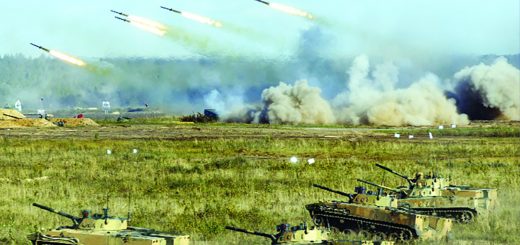













Recent Comments